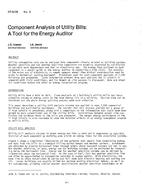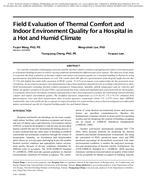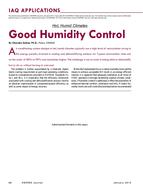Unitary water-to-air heat pumps have outstanding air- and water-heating capabilities. However, until recently actual cooling efficiencies were 15% to 25% lower than comparable high-efficiency air-to-air heat pumps when condenser fluid (air or water) temperatures are equal. Although the cooling efficiencies of conventional water-to-air heat pump systems are equivalent to actual air-to-air system efficiencies because of more moderate water temperatures, better performance is both possible and necessary. This is especially true in southern climates in order to justify higher first costs with significant cooling energy savings and peak-demand reductions. Presents several performance improvement possibilities and unitary water-to-air heat pumps. The design parameters of two 2.5-ton (8.8-kW) heat pumps are presented. One unit is a standard design with a hot water desuperheater. The second unit is similar, but full condensing water heating capability is added. Design cooling efficiencies in the 14.0 to 15.0 Btu/Wh (COP = 4.1 to 4.4) range are predicted with reciprocating compressors. Seasonal efficiencies should be 15% higher. An additional 10% improvement is possible with scroll compressors and improved indoor fan motors. An accompanying paper reports on the performance testing results of the two prototypes with reciprocating compressors that were built as part of the overall project.
KEYWORDS: designing, water air heat pumps, cooling, efficiency, soil heat pumps, unit heat pumps, performance, intercoolers, calculating, reciprocating compressors, testing, prototypes, heat pumps.
Citation: Symposium, ASHRAE Transactions, vol.97, Pt. 1, New York 1991
Product Details
- Published:
- 1991
- Number of Pages:
- 6
- File Size:
- 1 file , 870 KB
- Product Code(s):
- D-18626


